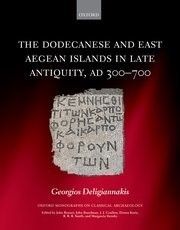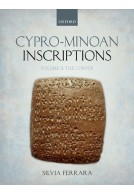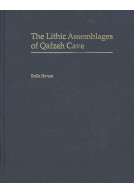Google Books previews are unavailable because you have chosen to turn off third party cookies for enhanced content. Visit our cookies page to review your cookie settings.
The Dodecanese and the Eastern Aegean Islands in Late Antiquity AD 300-700 (Hardback)
Imprint: Oxford University Press
Pages: 232
Illustrations: b/w illus
ISBN: 9780198745990
Published: 29th February 2016
Script Academic & Professional
Pages: 232
Illustrations: b/w illus
ISBN: 9780198745990
Published: 29th February 2016
Script Academic & Professional
You'll be £39.95 closer to your next £10.00 credit when you purchase The Dodecanese and the Eastern Aegean Islands in Late Antiquity AD 300-700. What's this?
+£4.99 UK Delivery or free UK delivery if order is over £40
(click here for international delivery rates)
Order within the next 6 hours, 20 minutes to get your order processed the next working day!
Need a currency converter? Check XE.com for live rates
(click here for international delivery rates)
Order within the next 6 hours, 20 minutes to get your order processed the next working day!
Need a currency converter? Check XE.com for live rates
The Dodecanese and the Eastern Aegean Islands in Late Antiquity, AD 300-700 is a regional study of the history, archaeology, and religious profile of the Late Antique Dodecanese (the islands of the south-eastern Aegean, centred on Rhodes), exploring how the spread of Christianity altered these communities and how the prosperity of the eastern Roman Empire, and the new capital in Constantinople, affected their life. Incorporating comparative evidence from the rest of the Aegean islands and both the Greek and Turkish mainlands, the volume analyses material from the whole area as part of a wider system of social and economic relations, political history, and culture. Accompanied by an extensive archaeological gazetteer, it presents the administrative and political history of the islands and considers the written and archaeological evidence for the monotheistic communities of the eastern Aegean, offering a closer examination of the late history of pagan temples and the transition to Christianity. It discusses the settlement and economic history of the islands, focusing on the urban history of Rhodes and Kos, but also on the numerous key non-urban sites from the rest of the islands, in particular the extended ruins of a barely known site located in the small island of Saria, north of Karpathos. The final chapter addresses the seventh century-which saw the destruction of so much of what had been built up in the fourth to sixth centuries-when the islands' societies acquired a new role for the State as naval outposts, functioning as a border zone in the course of the Arab-Byzantine wars.
Other titles in Oxford University Press...















